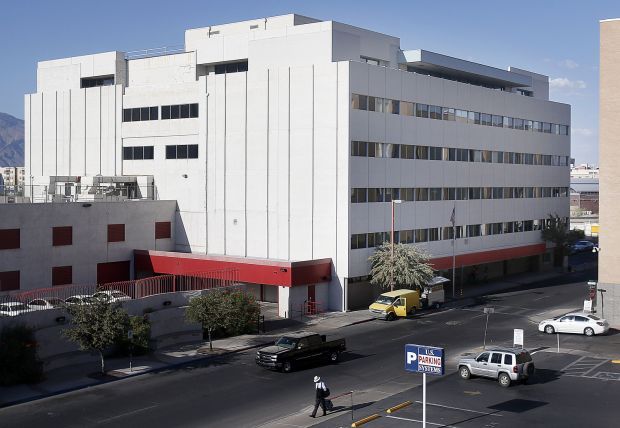It’s not exactly a “Get out of Jail Free” card, but if your name is on one of 40,000 outstanding city arrest warrants, an amnesty plan that’s in the works could save you a lot more than Monopoly money.
The plan, presented to the City Council on Tuesday, would set aside one day for violators to clear up a wide array of charges, such as long-ignored traffic citations, which could result in a trip “directly to jail” the next time you get pulled over.
Those who turn themselves in would get to talk with a city prosecutor and potentially make a deal to get some charges and fines dismissed, said city court administrator Chris Hale — though nothing would be guaranteed until each case is reviewed.
For example, if a person was cited for underage drinking and then failure to appeal in court, the prosecutor might offer to let the person plead guilty and pay a reduced fine, he said. Or, the prosecutor might offer to dismiss a charge of driving with a suspended license if the person attends a diversion class, he said.
Most of the 40,000 warrants involve failure to appear for traffic violations.
“There are not going to be any promises that people won’t go to jail, but the presumption is they would be released,” Hale said. The goal is to resolve cases, he added.
While those who turn themselves in would likely still face some penalty, the idea is to offer potential discounts to entice participation, as well as clearing cases off the books.
The details weren’t clear enough for City Council members Paul Cunningham and Regina Romero, who proposed the amnesty program, to move forward with it.
They asked Hale and City Court Judge Miguel Rios to keep working on the plans and involve more community partners.
For the city, in addition to bringing in some much-needed cash, the amnesty could also be a big money saver because it can avoid paying Pima County $250 for each person booked into the jail.
City Court has about $118 million in uncollected fines on its books, Hale said.
Cunningham said there are way too many cases on the books involving people who just can’t make a payment or who are scared they may have to go to jail, when in reality their cases could be handled quickly or through a payment plan.
“We’re not going to give anybody a free pass who’s involved in serious crime,” he said. But otherwise, people who attend the event would not go to jail and would perhaps get to pay reduced fines.
Cunningham told Hale and Rios the one-day event they planned was a good start, maybe as a pilot project, but he had a grander plan in mind.
It would involve attorneys volunteering their time to give legal advice, auto insurance companies ready to help people get coverage, and social service groups who could help people with other problems, among others.
The warrant event would be held on a Saturday, to help people who perhaps can’t come to court during business hours due to a job or child-care issue. Hale said City Court used to have Saturday hours but cut that day about seven years ago when budget cuts began.
City Court has a walk-in warrant court, which is open four days a week and which processes about 442 warrants per month, Hale said.
Because so many warrants are for failure to appear in court, Rios suggested a robocall reminding people of court dates might save the city a lot of money in warrant processing and jail costs. Rios said his “personal record” as a judge was a case involving a man with 160 failure-to-appear warrants.
The city court website, tucsonaz.gov/courts, is where you can check for warrants using a person’s name and date of birth and get information about how to handle warrants.





